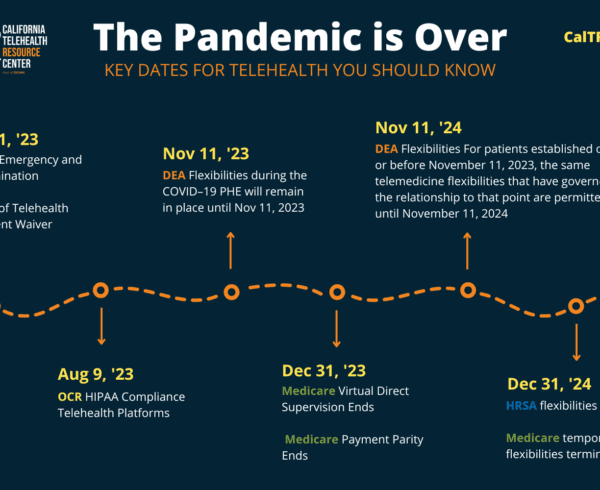On December 23rd, the House of Representatives approved a $1.7 trillion spending package, HR 2617, aka the Omnibus Appropriations legislation. Included in the legislation were a number of changes that have the potential to impact telehealth providers across the nation.
Some of the more notable changes are the two-year extension of telehealth geographic and originating site flexibilities, continuing eligibility for providers, including FQHCs and RHCs, to provide telehealth, and continued use of some audio-only services to the end of 2024. This will allow lawmakers extra time to consider which flexibilities should be permanent and permits patients who have come to depend on telehealth and hospital-at-home to continue usage.
Furthermore, the 4% Pay-As-You-Go (PAYGO) sequester has been prevented for two years. Otherwise, $38 billion in Medicare cuts would have taken effect in January. Similarly, the physician fee schedule cut was reduced from 4.5% to 2% for 2023 and around 3% for 2024. Another beneficial change regarding Medicare is the additional 200 Medicare-funded graduate medical education positions – half of which will be dedicated to psychiatry – which will be provided via the legislation.
According to AHA President and CEO Rick Pollack, these actions all aim to support our hospitals and health systems by “delivering critical support and resources so we can better care for our patients and create healthier communities.” Pollack claims that the relief provided by Omnibus is sorely needed due to “skyrocketing cost increases for supplies, equipment, drugs and labor, challenging workforce shortages, and the ‘tripledemic’ of COVID-19, flu, and RSV, the hospital field is stretched thin and on the brink.”
Continuing to support mental health, lawmakers took several steps to improve access to behavioral health services, including seven changes in the Omnibus bill. Similarly, access to substance abuse treatment was expanded by making it simpler for healthcare providers to utilize buprenorphine. Lastly, the bill included several changes to improve the government’s ability to prepare for future emergencies. Most notably, the establishment of the Office of Pandemic Preparedness and Response Policy was included. The aim of the office is to advise on pandemic preparedness, response policy, and inter-governmental communication.
The California Telehealth Resource Center is always here for your telehealth needs. Make sure to subscribe to our monthly newsletter to get important updates and breakdowns for all things telehealth directly to your email. If you have any questions regarding how the Omnibus spending bill, please fill out our contact form, and our team will get back to you. To learn more about telehealth policy and reimbursement, check out our free and unbiased library of policy resources, tools, and more!




